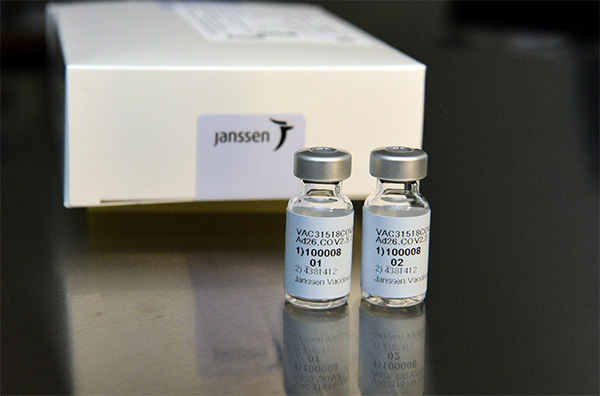
NEW YORK — Several Catholic ethicists are urging people to steer clear of the Janssen/Johnson & Johnson COVID-19 vaccine if possible, but at the same time affirm it is morally acceptable to receive it if the alternatives are not an option.
The latest COVID-19 vaccine received emergency use authorization from the U.S. Food and Drug Administration this past weekend. Its connection to abortion-derived cell lines in development, production and testing have since prompted questions.
The other two COVID-19 vaccines authorized for use in the U.S., Pfizer-BioNTech and Moderna, used abortion-derived cell lines in confirmatory testing, but not in production or development.
“If one can choose among equally safe and effective COVID-19 vaccines, the vaccine with the least connection to abortion-derived cell lines should be chosen. Therefore, if one has the ability to choose a vaccine, Pfizer or Moderna’s vaccines should be chosen over Johnson & Johnson’s,” Bishop Kevin Rhoades of Fort Wayne-South Bend, chairman of the USCCB Committee on Doctrine; and Archbishop Joseph Naumann of Kansas City in Kansas, chairman of the USCCB Committee on Pro-Life Activities said in a statement Tuesday.
“While we should continue to insist that pharmaceutical companies stop using abortion-derived cell lines, given the world-wide suffering that this pandemic is causing, we affirm again that being vaccinated can be an act of charity that serves the common good,” they continued.
Several COVID-19 vaccine manufacturers used one of two abortion-derived cell lines.
The Janssen/Johnson & Johnson vaccine used PER.C6, which is a retinal cell line that was isolated from an abortion in 1985. Other manufacturers used HEK-293, which is a kidney cell line that was isolated from an unborn child aborted in 1972.
Joseph Meaney, the president of the National Catholic Bioethics Center, told The Tablet it’s unlikely a 100 percent ethical vaccine will be available in the United States any time soon. Until there is, he emphasized the importance of moral discernment.
“If you really need this vaccine, you’re in terribly fragile health, you’re surrounded by other people in very difficult health, you’re in a position where you’re very likely to catch the disease, you have all kinds of different factors that are part of the moral discernment and the only vaccine that is available to you is the Johnson & Johnson, it can be moral to take that one,” Meaney said.
He further noted that at this point in the United States, “what you physically have available to you is really what your moral choice ends up being. You can’t choose for the pie in the sky, you have to look at what’s really available.”
The statement from the USCCB chairmen echoes an unsigned statement from the Archdiocese of New Orleans Friday that called the Janssen/Johnson & Johnson vaccine “morally compromised,” and advised diocesan parishioners to choose an alternative if possible.
Meaney confirmed that he had a conversation with Archbishop Gregory Aymond of New Orleans before the statement was published. Archbishop Aymond is the chairman of the National Catholic Bioethics Center Board of Directors.
The Archdiocese of New Orleans statement also prompted questions about the responsibility of Catholic organizations used as vaccination sites to administer the more morally acceptable vaccines. Meaney said there should be “ethical discernment” and “strong requests made” on that front, but again emphasized that the COVID-19 pandemic is an emergency situation.
The University of Notre Dame, for example, announced Tuesday that it will serve as a vaccination site at the end of March, and will administer the Janssen/Johnson & Johnson vaccine.
“It’s true given the emergency situation we’re in then it just may not be available,” Meaney said of an organization’s ability to choose the vaccine it administers. “Sad to say, there are situations where you’re kind of forced to do something that’s less good simply because that’s the only thing that’s available.”
Meaney added that he hopes there would be a “good faith effort” from the government to “accommodate and to help people who have conscientious concerns.”
“Where there’s a will there’s a way, usually, on a lot of these things. But there has to be a certain attentiveness and concern there,” he said. “I think the second thing is organization, seeing how the distribution can be adapted.”
The Vatican hasn’t commented on the Janssen/Johnson & Johnson vaccine. In December, the Holy See said it is “morally acceptable” to receive COVID-19 vaccines that used the controversial cell lines in their research and production process.
